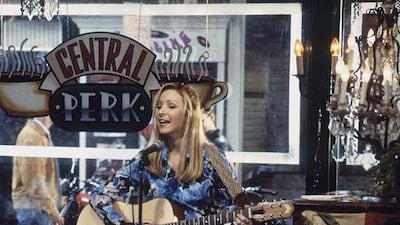A golden handshake or the freedom to pursue another project may ease the pain of dismissal
When Philippe Dauman, the former chief of Viacom, the international media powerhouse, was given the sack a few months ago by the board of directors, it must have hurt a bit. After all, Dauman had steered the conglomerate through some turbulent times – reorganisations, corporate break-ups, the disruptive forces of the internet and streaming video – and had managed to maintain a certain amount of profitability across its many businesses.
But show business – and every other business, I’m sure – is a coldhearted place. It doesn’t matter how valuable or effective you’ve been in the past. Once it becomes expedient to dump you by the side of the road, you should expect exactly that to happen.
So, Dauman couldn’t have been surprised. But he was, according to some reports, stung. Bruised ego, hurt feelings, a sense of failure – all of these reactions are the natural by-products of getting fired, irrespective of the job or its prestige. I’ve been fired twice in my life and both times, frankly, it came as a relief. Nevertheless, I still felt a touch of shame for weeks afterwards. It wasn’t personal and it wasn’t because I had delivered poor work (both times it was primarily about money), but still: I was sacked, I had my belongings sent home, I turned in my parking pass, it felt like I had failed.
Dauman may have felt the same way, though I suspect whatever hurt feelings or personal sadness he experienced was mitigated by the US$72 million (Dh264m) severance package he was offered as a going-away gift.
Perhaps I should have mentioned that earlier, in case you were feeling sorry for him.
Getting the shove in show business, it turns out, is a very lucrative career move. When the studio chiefs of ABC Networks, Sony and Dreamworks were recently asked to vacate their swish corner offices, all of them received multimillion dollar goodbyes. Peter Chernin, who once sat atop the sprawling empire of 20th Century Fox, was even luckier.
When he was turfed out of his position a few years ago, his farewell treat included cash (of course) and an astonishing array of glittering prizes, including an automatic “green light” on a series of future films for his (brand new) production company to produce, and multi-episode commitments for a brace of television series.
Faced with all of these generous gifts for outgoing executives, it’s hard not to wonder why, if they’re all so valuable, they’re being fired in the first place.
Even actors, usually the most pampered and cosseted citizens of the show business community, face tougher terms when kicked off a project. Often they aren’t even paid the full amount stipulated in their contracts.
Lisa Kudrow, the brilliantly talented comic actress, was originally cast in the first episode of the sitcom Frasier. But after a few days of rehearsal, the producers huddled together and decided that she didn't really fit into the ensemble they were envisioning. So they called up her manager and gave him the bad news to give to his client. (In Hollywood, no one wants to deliver bad news to anyone. We leave it up to the agents, lawyers, and managers.)
She was, naturally, crushed. She felt, I suppose, a bit the way I felt those two times I was fired, and probably a bit like Dauman felt when he got the call from his lawyer. She may even have thought, for a few weeks at least, that she had failed, that show business wasn’t for her, that she should pack up her things and head home.
She didn't, of course. Less than a year later, she was playing Phoebe on the long-running smash hit Friends, and a few years later she was one of the highest-paid performers on television.
A lot of successful actors have stories like that. Another terrific actor, Paul Rudd, was once asked in an interview to describe the best moment of his career. He mentioned once giving an audition for a certain television series and not getting the job. He was thrilled, he said, to have been passed over – not at first, but soon afterwards – because it allowed him to accept the small but juicy movie role that ignited his career.
The television series he auditioned for was one of mine. The producer who didn’t cast him was me. The series went on to middling success, at best – we produced 15 or so episodes, to a lacklustre reception and stopped production within the year. But it’s interesting to speculate on how Rudd’s career might have unfolded had he been “lucky” that morning and aced the audition. My guess is, of course, that he would still be the star he is – talent naturally rises to the top – but it would have been a much more zigzagged path.
What no one offers actors – or writers, or directors, or anyone else in show business – is the kind of zillion-dollar I’m-sorry-please-go pay cheques that are routinely doled out to Hollywood CEOs. All of us, I’m sure, feel the pain of rejection and have our self-confidence shaken. But only those in the executive suite get the big money.
Which makes sense, because it’s executives who must approve these giant go-away settlements. And they want to make sure the tradition is upheld for that cold day when they get the call from their lawyer.
Rob Long is a writer and producer in Hollywood
On Twitter: @rcbl

